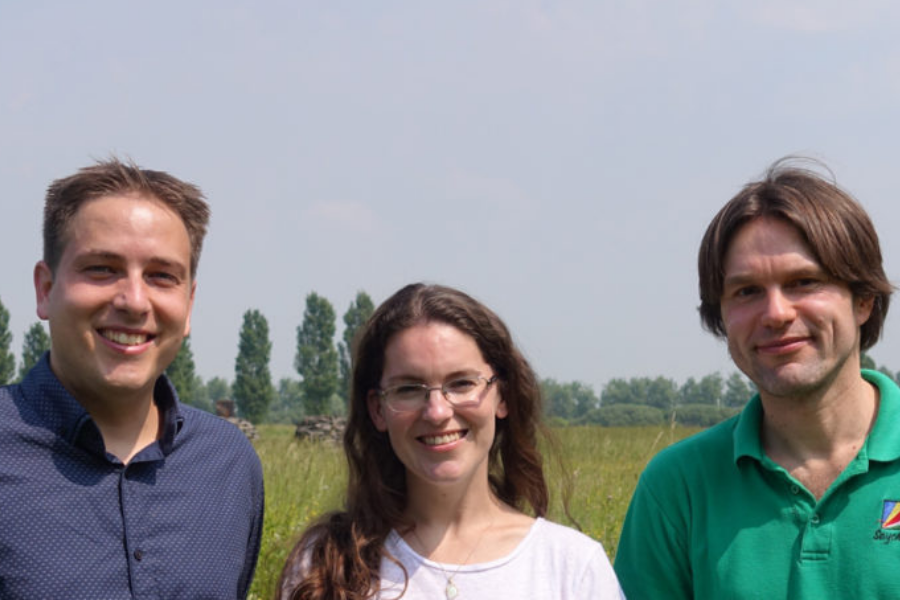Schema therapy was developed by American psychologist Jeffrey Young for the treatment of personality disorders and to help individuals who had not seen success with other treatments.
The therapy works to help patients address schemas – negative themes or patterns they may be repeating through their lives – by identifying emotional triggers and, in turn, behavioural patterns.
Looking to make schema therapy more accessible is South Australian startup Secure Nest, cofounded by Sally and Joseph Skewes, a clinical psychologist and an IT professional, respectively, with the assistance of Dutch psychologist Michiel van Vreeswijk.
As Joseph explained, the platform aims to address the fact that gaining access to therapy can be a challenge for many.
“Due to a lack of resources – for example, Medicare session limits, difficulty accessing therapists in regional areas, or lack of financial capacity for clients to fund regular sessions – there is often insufficient means to provide effective psychological treatment for clients,” Joseph said.
“Therapists need evidence-based tools and innovative ways of working effectively with their clients to support them between sessions. People need access to personalised self-education to understand their negative life patterns, such as where they have come from and how they develop, and how to change.
Secure Nest aims to be the solution. Its platform provides individuals with a self-education program, along with a collaborative workspace for therapists and their clients to connect through between sessions.
With Sally a clinical psychologist, Joseph said she often spoke about how helpful scheme therapy was for her clients; an approach she had taken an interest in while completing her Masters degree at the University of South Australia.
“When I saw Sally using paper-based exercises and questionnaires, I went looking for an online tool which could support Sally and her clients and was surprised when I didn’t find any,” Joseph said.
The pair began working together in late 2015 to identify therapy tools that could be digitised, before validating the idea with others in the field and starting work on the platform.
Beyond the self-education, for Sally it was crucial to find a way to boost the connection between therapists and patients between sessions.
“In Australia only 10 psychology sessions are funded under Medicare each year, regardless of diagnosis. Even for less severe difficulties, less than a year of schema therapy is rarely enough. This leads to the most vulnerable clients being unable to access the therapy they need,” Joseph said.
“Sally felt that if we were able to enhance connection in between sessions by bringing together the therapist and client on one platform it may be possible to catalyse the change process, which could lead to broader accessibility and acceptance of schema therapy.”
The platform can be used in a couple of ways.
Individuals working without a therapist can create an account and take part in a three-week self guided program.
A therapist, meanwhile, can create an account and link in that of their clients, who can find them during their own registration process. Once signed up, clients will have access to the workspace, where they can access to a variety of tools and communicate with their therapist, and keep track of their progress. Therapists can also assign clients modules from the content library.
The group therapy function, meanwhile, allows therapists to share content with group therapy clients, who are also able to connect and support each other.
With these use cases in mind, Joseph said the startup is targeting any therapists, psychologists, or health professionals who are practicing or have an interest in schema therapy, along with individuals who are seeing a therapist, those waiting to see a therapist, or, of course, anyone who simply wants to learn more about schema therapy and how it might be able to help them.
The startup has leveraged a number of programs to help push its development.
After coming up with the idea for the platform in late 2015, they took part in the University of South Australia’s Venture Catalyst program, Adelaide University eChallenge, and the SA Young Entrepreneurs Scheme.
A minimum three month paid subscription for a therapist starts at $39, or $139 for a year, while individuals can sign up for a month at $29. The platform now has paid subscribers across Australia, New Zealand, the Netherlands, and the UK, with trial accounts globally.
To grow further, Joseph said the business will look at growing its full-time staff. Among the new concepts in the pipeline is combining online tools with face to face contact.
Image: Joseph Skewes, Sally Skewes, Michiel van Vreeswijk. Source: Supplied.




















Trending
Daily startup news and insights, delivered to your inbox.